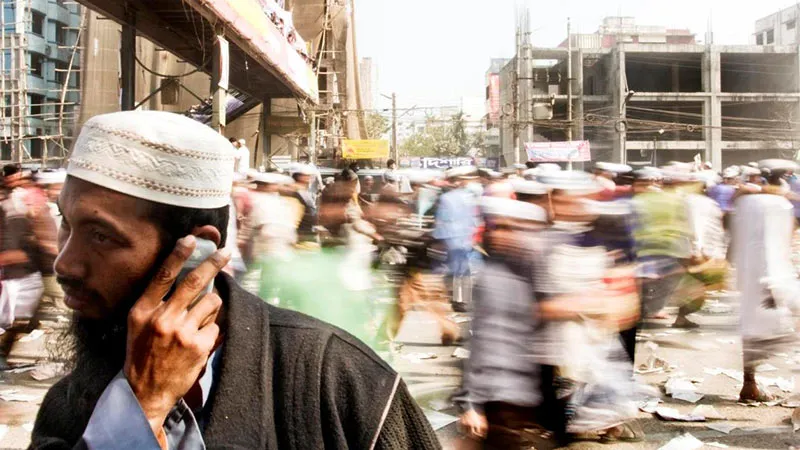-
CENTRES
Progammes & Centres
Location

The recent hostage crisis in Dhaka, one of the bloodiest in the history of Bangladesh, has raised concerns about peace and stability in the country. On July 1, a group of armed militants took seize of an upscale cafe in the diplomatic area of the capital which was frequented by expats and affluent Bangladeshis.
The militants killed 20 people, mostly foreigners. Last month, a country-wide counter-terror drive led to the arrest of more than 11,000 people. The present attack suggests an escalation of the capabilities of militant organisations; they could withstand Government crackdown and carry out bloody attacks.
The nature of the operation was not familiar of militant organisations, thereby giving doubts about linkage with the Islamic State (IS). However, the Bangladeshi Government has not recognised such possibilities and has claimed the group to be indigenous. Irrespective of the debate, the present incident is suggestive of the fact that militants have a deeper grip in Bangladesh and this is not a sudden phenomenon.
The country has been experiencing a rise in militant activities since 2013. Militants have been regularly targeting voices that are critical of their ideology, which includes bloggers, secular writers, members of minority community, international aid workers. They even targeted a Muslim cleric who did not correspond to their ideology.
The difference between the present attack and the previous ones is that earlier, attacks were targeted on individuals, but this time, it was a mass attack. It is time for the country to introspect the reason for the rise of militancy. Militancy, if not controlled, will lead to bigger catastrophe for Bangladesh.
In spite of Bangladesh Prime Minister Sheikh Hasina’s policy of zero tolerance to terrorism, the present spell of violence has raised questions on the sincerity of the Government which has been accused of being lenient and soft on terror. Besides, there are allegations that the Government is not doing enough to promote liberal voices in the country. Contrarily, the Government has been harsh on people who tried to counter radicals, like the arrest of bloggers on charges of blasphemy.
Today, the people in Bangladesh are scared to express their views freely. Liberals are faced with the two-edged sword. On the one hand, they are faced with threats from militants, on the other hand, they fear non-cooperation from the Government. The present situation has led to an absence of a counter-narrative which is necessary to contradict the venom spread by militant groups to attract cadres. The need for alternative views has become more important in the age of social media which is a major source of radicalisation globally and Bangladesh is no different. The Government needs to consider this angle and take note of the developments worldwide.
Further, divisive politics in the country makes the situation worse. The Government has been accusing the Jamaat-e-Islami (JI) and the Bangladesh Nationalist Party (BNP). Many top leaders of the JI and the BNP are facing war trials and some of them were executed for their involvement in war crimes. The claim, if true, is indicative of a grave situation. The major ideology of the militant groups is to establish a Caliphate which does not favour democracy. Using militancy for political gains will not be helpful to any party. Therefore, the present situation calls for national unity.
Also, this attack highlights a transformation in the nature of cadre base of the militant groups. Unlike in the past, when soldiers for militancy were from madrasas, the attackers were from elite background with a liberal education. Such a trend will hurt the society. Also, this development demystifies the popular perception of poverty and unemployment as a motivation for militancy. The recent terror attack calls for a fresh perspective on the issue of militancy. Along with military means, emphasis should be made on de-radicalisation. Initially, Hasina was focused on it, but gradually lost steam.
Reinforcing focus on de-radicalisation should be a priority. To make it possible, participation of all, including the common public will be crucial. People of Bangladesh must realise that a repeat of such incident will damage the country;s economy which is growing at six per cent for more than a decade. The onus is on the people of Bangladesh to decide the future of the country.
To fight militancy, Bangladesh also needs the support of the international community. The international community can help by improving capacity building of the Armed Forces, intelligence sharing etc.
India, being a close neighbour with a contiguous border, which is porous, has to be vigilant of the developments in that country. There will be ramifications for India too if the situation deteriorates in Bangladesh. The need of hour is to strengthen counter cooperation between the two countries. This is a battle which cannot be fought in isolation and demands the cooperation of all.
This commentary originally appeared in The Pioneer.
The views expressed above belong to the author(s). ORF research and analyses now available on Telegram! Click here to access our curated content — blogs, longforms and interviews.

Joyeeta Bhattacharjee (1975 2021) was Senior Fellow with ORF. She specialised in Indias neighbourhood policy the eastern arch: Bangladeshs domestic politics and foreign policy: border ...
Read More +